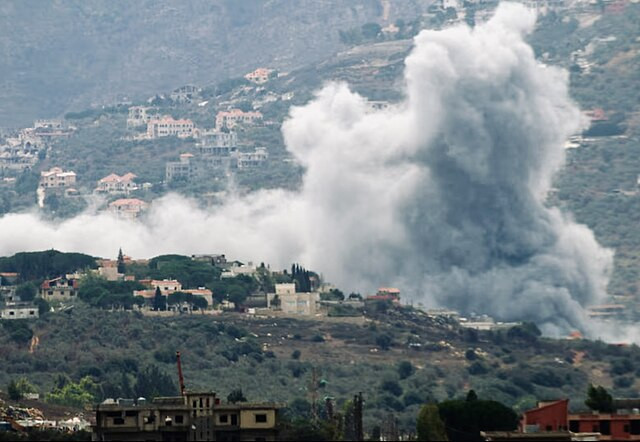Israel launched one of its most aggressive air campaigns against Hezbollah targets in Lebanon on Monday, killing at least 182 people, according to Lebanon's Ministry of Health. The strikes, which targeted Hezbollah positions in southern Lebanon, the Bekaa Valley, and northern regions near the Syrian border, mark the deadliest day in nearly a year of escalating hostilities between Israel and the Iran-backed militant group.
The Israeli Defense Forces (IDF) stated that they attacked more than 300 Hezbollah targets, including rockets and cruise missiles reportedly hidden in civilian homes. The strikes are part of Israel's broader effort to neutralize Hezbollah's military infrastructure, which has been firing rockets into northern Israel in support of Hamas, Israel's other major adversary to the south. The ongoing violence has raised concerns about the potential for a wider regional conflict that could draw in Iran and the United States.
Israeli Prime Minister Benjamin Netanyahu warned of "complicated days" ahead as the campaign against Hezbollah intensifies. "I promised that we would change the security balance in the north, and that is exactly what we are doing," Netanyahu said following a situational assessment with military leaders in Tel Aviv. He also called on Israelis to remain united as the conflict escalates.
Hezbollah responded by launching a barrage of missiles targeting a military base in northern Israel. Though casualties were reported on both sides, the Israeli strikes inflicted significant damage in Hezbollah strongholds, particularly in Shia villages in southern Lebanon. The Lebanese health ministry confirmed that many of the dead included women, children, and medics.
Lebanon is now grappling with the aftermath of one of the most intense waves of airstrikes since the 2006 war between Israel and Hezbollah. Thousands of Lebanese civilians have fled their homes, with reports of heavy displacement throughout southern Lebanon. Lebanon's Interior Minister, Bassam al-Mawlawi, announced that schools in Beirut, Tripoli, and other regions were being opened as shelters to accommodate the growing number of displaced citizens.
Amid the rising violence, the Lebanese government has accused Israel of targeting civilian infrastructure under the guise of hitting Hezbollah weapons caches. Rear Admiral Daniel Hagari, an Israeli military spokesperson, rejected these claims, asserting that Hezbollah was using civilian homes to store weapons. "The sights now from south Lebanon are of secondary explosions of Hezbollah weapons, which are exploding inside houses," Hagari said, calling on civilians in the Bekaa Valley to evacuate immediately.
The situation on the ground has prompted widespread fear of a full-scale war. Joseph Ghafary, a state employee in Beirut, expressed concern over the potential for further escalation. "If Hezbollah carries out a major operation, Israel will respond and destroy more than this. We can't bear it," he said. Another Beirut resident, Mohammed Sibai, warned that the intensifying airstrikes were "the beginning of the war."
The air campaign comes in the wake of a major blow to Hezbollah, whose leaders were targeted in a series of Israeli airstrikes last week. An attack on Beirut's southern suburb claimed the lives of 45 people, including senior Hezbollah commanders Ibrahim Aqil and Ahmed Wahbi, dealing a significant blow to the militant group's leadership.
Hezbollah's Secretary General, Hassan Nasrallah, described last week's attacks as "unprecedented in the history" of the group. Despite suffering these losses, Hezbollah has vowed to continue fighting until a ceasefire is reached in Gaza, where Israel has been engaged in a prolonged conflict with Hamas.
The United States, a close ally of Israel, has expressed concerns about the escalating conflict. American officials have warned Israel that excessive civilian casualties in Lebanon could push Hezbollah into further retaliation, potentially dragging the region into a wider war. Iran, which supports Hezbollah, has condemned the Israeli strikes, with Foreign Ministry spokesperson Nasser Kanaani warning that there would be "dangerous consequences" for what he described as Israel's new "adventure."
The conflict is also taking a psychological toll on Lebanese citizens, with reports of automated evacuation calls being detected across the country, including in Beirut. Lebanon's Information Minister, Ziad Makary, dismissed the calls as part of a "psychological war" aimed at sowing fear among the population.
As Israeli aircraft prepare for further strikes on Hezbollah positions, the region teeters on the brink of a larger conflict. "We have one mission-to return the residents in the north safely," Hagari said, suggesting that Israel may expand its operations if Hezbollah continues to retaliate.




